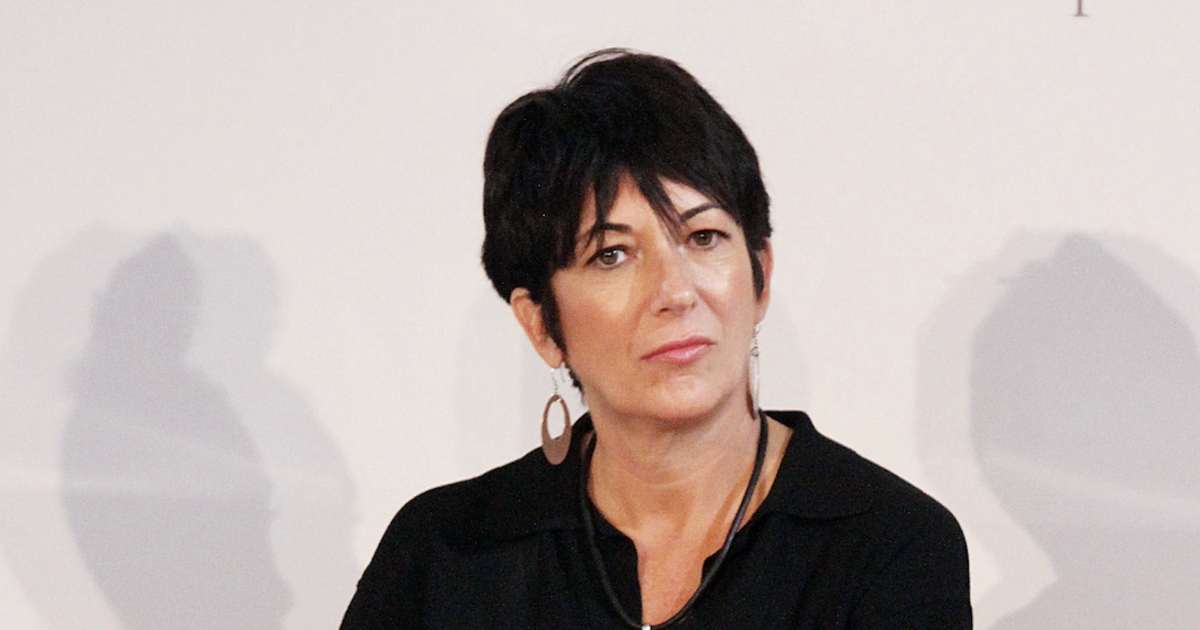Ghislaine Maxwell, pictured with Jeffrey Epstein, was sentenced Thursday for her role in recruiting and abusing minors.
Ghislaine Maxwell is set to be sentenced Tuesday for helping Jeffrey Epstein sexually abuse underage girls for at least a decade between the 1990s and 2000s. The British former socialite, whose late father rose to prominence in the U.K. as a media baron and member of Parliament, faces a district court hearing in Manhattan.
Following a widely publicized criminal trial, Maxwell was found guilty last December of conspiring with Epstein — her longstanding associate and romantic partner for a time — to groom, recruit and sexually abuse minors as part of the late financier’s now-infamous trafficking ring. Maxwell was convicted of multiple charges related to sex trafficking and conspiracy.
Ghislaine Maxwell found guilty on five out of six counts, including sex trafficking of a minor
03:57
Her defense team had asked to postpone Maxwell’s sentencing hearing because she was suddenly moved to solitary confinement. Addressing reports about her mental state, attorneys said that Maxwell had taken a test proving that she was not at risk of suicide prior to the transfer. They argued Maxwell’s hearing should be rescheduled since solitary confinement meant she was unable to prepare for it.
Despite Maxwell’s bids for leniency, prosecutors submitted a written request to the judge one week ahead of the hearing recommending that she serve 30 to 55 years in prison. That number aligns with federal sentencing guidelines.
“As part of a disturbing agreement with Jeffrey Epstein, Maxwell identified, groomed, and abused multiple victims, while she enjoyed a life of extraordinary luxury and privilege. In her wake, Maxwell left her victims permanently scarred with emotional and psychological injuries,” they wrote. “That damage can never be undone, but it can be accounted for in crafting a just sentence for Maxwell’s crimes.”
Maxwell’s defense asked the court to sentence her to no more than five years in prison.
Eight victims — Annie Farmer, Teresa Helm, Sarah Ransome, Virginia Giuffre, Elizabeth Stein, Juliette Bryant, Maria Farmer, and a woman identified as “Kate” — submitted victim impact statements for the sentencing to Judge Alison Nathan ahead of this week’s hearing. Nathan ruled Monday up to six may share a shortened oral version of those statements in person Tuesday, though all are on the record.
Maxwell, now 60, was initially indicted in July of 2020 and taken into federal custody, where she was held without bail for 16 months leading up to her trial. The arrest came about a year after Epstein died by apparent suicide in his New York City jail cell while facing federal sex trafficking and conspiracy charges. Epstein’s death sparked further calls for justice from victims and government officials, since his own trial had not yet begun.
Maxwell pleaded not guilty to all charges originally brought against her, and was acquitted of one count of enticing a minor to travel across state lines to engage in an illegal sex act. She never took the stand to testify during the trial, saying she felt there was “no reason” to formally defend herself before the court because “the government [had] not proven its case beyond a reasonable doubt.”
Soon after the conviction, her attorneys sought a retrial on the grounds that the jury’s decision was biased, since one juror had experienced sexual abuse as a child but did not disclose that fact during jury selection. The judge denied Maxwell’s request and rejected her claim regarding potential bias.
“In sum, the Court concludes that the evidence in the record does not support finding that Juror 50 was biased,” Nathan said in response. “Juror 50’s sworn testimony did not reveal actual partiality. And Juror 50 was not impliedly or inferably biased.”
